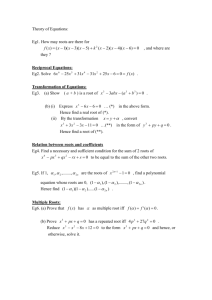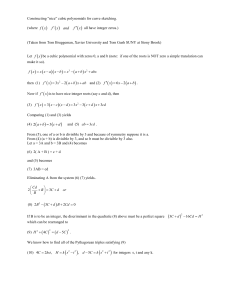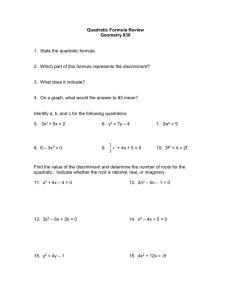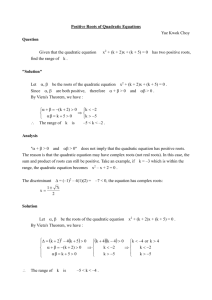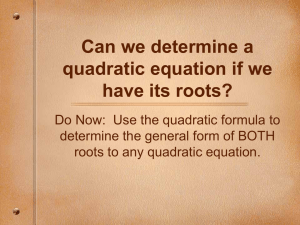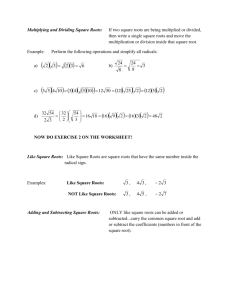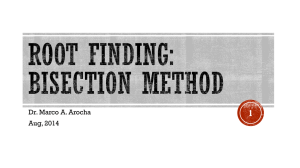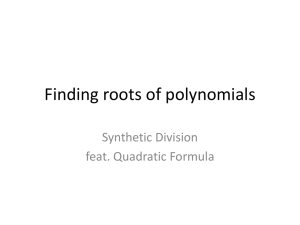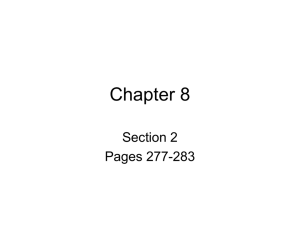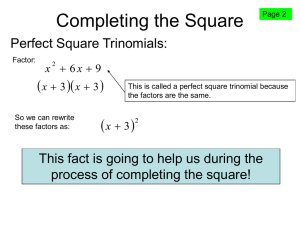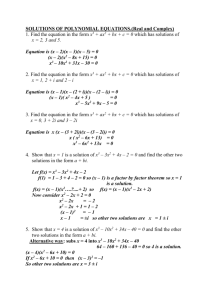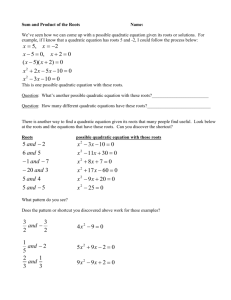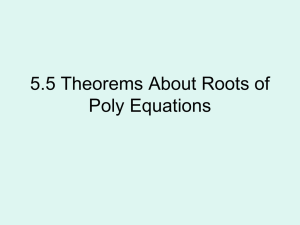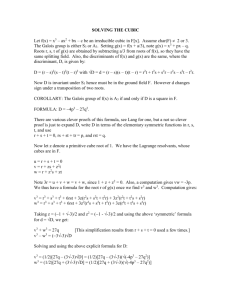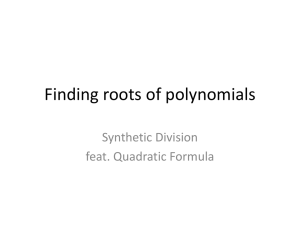Sum and Product of the roots
advertisement
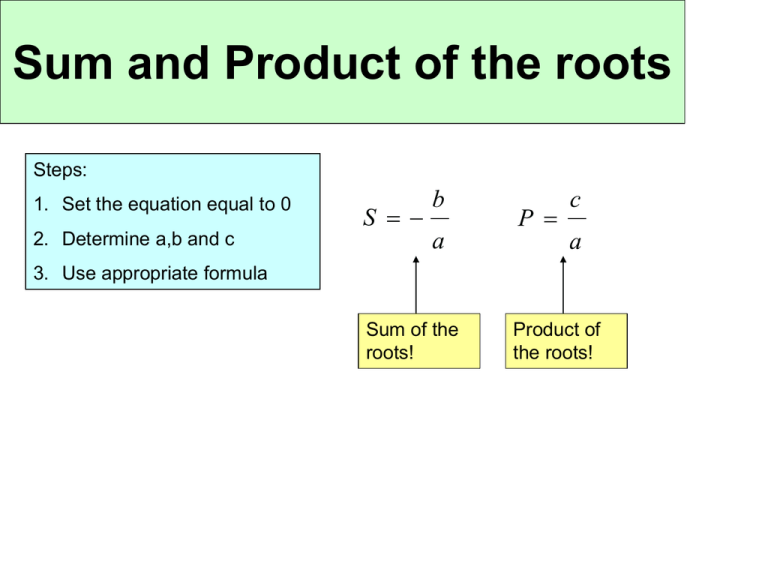
Sum and Product of the roots Steps: 1. Set the equation equal to 0 2. Determine a,b and c S b a P c a 3. Use appropriate formula Sum of the roots! Product of the roots! Page 3 For the given quadratic equations, find a) sum of the roots and 2 a4 b) product of the roots. b 1 x 9x 5 0 2 #2: 4x x 3 0 #4: c 3 a 1 b9 S P S 9 1 9 9 1 c a a c5 S b P S a 5 1 P 5 b S 1 4 S 1 4 P c a P 3 4 Page 3 #10: 2m 2 5m 2 5m 5m Write a quadratic equation given the sum and the product. To do this, we use the equation: 2m 5m 2 0 2 x Sx P 0 2 a 2 b 5 S c2 b a S 5 2 P c a Sum of roots Product of roots 16 , product #14: sum 16 80 x Sx P 0 2 P 2 x 16 x 80 0 2 2 x 16 16x 80 0 2 S 5 2 P 1 Notice the sign of the sum changes! The sign of the product stays the same! sum 6 , product 8 #16: r1 r2 #18: x Sx P 0 2 x 6 x 8 0 5 2 , r1 r2 1 x Sx P 0 2 2 5 x x 1 0 2 5 2 x x 1 0 2 2 x 6x 8 0 2 You may not see this answer written this way on a test, so lets rewrite it. 2 x 2 5 2 x 2 1 2 0 2 2x 5x 2 0 2 Page 3 Write a quadratic equation whose roots are given: Page 3 #20: 2 ,10 sum 2 10 12 product 2 10 20 x Sx P 0 2 x 12 x 20 0 2 x 12 x 20 0 2 Steps: 1. Find the sum of the roots (by adding them) 2. Find product of the roots (by multiplying them) 3. Use sum/product equation to write the equation Page 3 #22: 8 ,8 sum 8 8 0 product 8 8 64 x Sx P 0 2 x 0 x 64 0 2 x 64 0 2 #24: 3, 3 sum 3 3 0 product 3 3 9 3 x Sx P 0 2 x 0 x 3 0 2 x 3 0 2 2 i,2 i #30: Page 3 #32: 2 3 ,2 sum 2 i 2 i 4 sum 2 product 2 i 2 i 5 product 2 3 3 2 3 2 x Sx P 0 x Sx P 0 x 4 x 5 0 x 4 x 1 0 2 2 x 4x 5 0 2 2 2 x 4x 1 0 2 3 4 3 1 For the given equation, one root is given. Find the other root. #38: x 11 x k 0 , r1 5 2 Page 3 #42: x kx 16 0 , r1 8 2 x Sx P 0 2 Remember the equation: The sum is the number with the x term, and remember that the sign changes! 5 r2 11 x Sx P 0 2 x 11 x k 0 2 S 11 , P k If we know that one root is 5, and the sum of the roots is 11, then: r2 6 x kx 16 0 2 S k , P 16 SO 8 r2 16 r2 2 Remember, some roots always come in pairs: r1 3 2 i What does root 2 have to be? The same is true for the following: r1 1 3 r2 1 3 It has to be the conjugate of root 1. r2 3 2 i Imaginary roots and radical roots always come in pairs!! Homework •Page 3 #3,6,9,13,15,17,19,29 ,33,39,41

